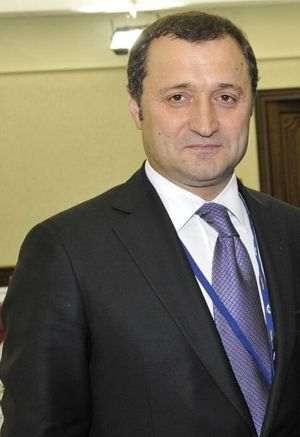• The head of BT Securities invokes the uncertain status of the Rasdaq market
• The Romanian National Securities Commission has responded ever since last year to the prosecutors of the DIICOT that the allegedly irregular trade does not represent "market manipulation"
• However, sources from the market claim that the deal has violated the regulations of the BSE
• Bogdan Chetreanu: "We can"t just have everyone doing whatever they please on the Rasdaq market"
A new scandal had the domestic stock market worried yesterday, after Rareş Nilaş, the managing director of BT Securities, Gicu Agenor Gânscă, a well known businessman of Cluj and three other brokers were charged with of the manipulation of the stock market by way of two trades with the shares of the company "ACI" Bistriţa, listed on the Rasdaq.
According to the prosecutor"s charge, Gicu Agenor Gânscă is charged with ongoing manipulation of the stock market, after buying based on a pre-contract shares in ACI Bistriţa, and later completing the trade on the BSE, in order to preserve the appearance of legality, Mediafax informs.
Prosecutors claim that in 2007, Gânscă concluded a pre-contract with the head of "ACI" Bistriţa, Ioan Blaga, for two blocks of 343,092, and 3.66 million shares respectively.
The trade on the stock market took place at the price set in the pre-contract, through brokerage firm BT Securities.
According to the charge, first, a broker of BT Securities placed an order to sell 3.66 million ACIS shares at a price of 0.1 lei/share, and one minuter after, placed the order to buy at the asking price.
"The defendant Gânscă Gicu Agenor sought to and succeeded in artificially influencing the price of the shares of ACIS with the help of Rareş Doralin Nilaş, Ana Maria Oprean, Sergiu Dan Dascăl and Horea Ionuţ Boboş", the prosecutor"s charge states.
Contacted by "BURSA", Rareş Nilaş claims that the trade for which he was sued can not be considered market manipulation, arguing that the Rasdaq is a regulated market.
Rareş Nilaş said: "According to the capital market law, market abuse only applies to a regulated market, not to the Rasdaq, because it has not been qualified as a regulated market. This is demonstrated by the report of the Romanian National Securities Commission in the official journal of the European Commission which stated that Romania has regulated spot and derivatives markets in Bucharest and Sibiu. The Rasdaq is not mentioned anywhere, which means that the Romanian National Securities Commission doesn"t consider the Rasdaq to be a regulated market either ".
Lawyer Cristian Duţescu, who represented Agenor Gânscă of Cluj in the trades with ACIS shares, argues a similar point. He said: "The fact that the Rasdaq is not a regulated market is an argument that can be invoked before a court of law, but it is also a purely juridical aspect. From my point of view, as a lawyer, this is a formal argument that needs to be taken into account when beginning prosecution. Any investor on the Rasdaq is entitled to disregard the provisions of market abuse, as long as the capital market law states that the provisions of market abuse apply only to regulated markets (even though we have supported their extension to include the ATS markets). One of the oldest principles of law states that you can"t punish someone for acts which are not incriminated by law. From this point of view, I would characterize the actions of the DIICOT as an erroneous interpretation of the law".
CNVM commissioner Bogdan Chetreanu seems to disagree with the arguments of Nilaş and Duţescu, even though he does not mention them explicitly. Chetreanu said: "The fact that the Rasdaq market is not regulated, does not provide protection against the accusations of market manipulation for the companies listed on the Rasdaq. Until the final decision on the status of the Rasdaq market will be determined, we have treated it as a regulated market. Concerning the criminal side of the matter, we await the answer of the State Prosecutor"s Office. What is clear, is however, that we can"t just let anyone do what they please on the Rasdaq, hiding behind the fact that it is unregulated as an excuse".
In the beginning of 2010, the Romanian National Securities Commission (CNVM) issued a ruling on the suspected trade involving ACIS stock, and told the prosecutors of the DIICOT that the deal did not violate the provisions of market manipulation. The answer that the CNVM provided at the time relied exclusively on the data it had available at the time, members of the Commission say.
Commissioner Bogdan Chetreanu also said: "In January 2010, the prosecutor"s office asked us to provide an opinion on the trades performed in the case involving BT Securities. At the time, based on the data we had available, we found no violations of the stock market legislation. Essentially, in January 2010, the people of the DIICOT have singled out those trades and asked us whether that could be considered market manipulation. The CNVM will not perform an investigation now those trades are being reviewed as part of an ongoing criminal investigation".
• A "Cross" trade that was made with the parties agreeing in advance?
Market sources consider that the trades by which Gicu Agenor Gânscă bought 10% of "ACI" Bistriţa was actually a cross trade that violates the provisions in effect, because it was based on a prior agreement between the parties, namely the pre-contract concluded between the buyer and the seller. A cross is a trade in which the buyer and the seller use the same broker, in this case, BT Securities. For the moment there is no information available on the terms of the contract.
"Concerning the recent case which involved accusations of market manipulation there can be no evaluations made as long as the details are missing", said lawyer Narcisa Oprea, of "Schoenherr and Associates", who added: "It is not even clear whether those trades were considered "deals" or were just generic cross trades. In the case of cross trades, the Code of the Bucharest Stock Exchange forbids any prior agreement between the parties and requires that the trade does not have a significant effect on the price and the volume of the stock. In this case as well, I believe that the disregarding of the restrictions on cross deals does not automatically represent market abuse, as several aspects need to be evaluated in order to back the market manipulation suspicions. On the other hand, these restrictions on cross trades do not apply to stocks listed on the Rasdaq, just as in principle market abuse isn"t considered an offense when it comes to trades performed on the Rasdaq".
Regardless of the potential effect it could have on the stock market, the case is also of interest from a theoretical point of view, in a delicate case, where a nuance or an emphasis can make the difference between a solid business reputation and criminal sanctions.



















































